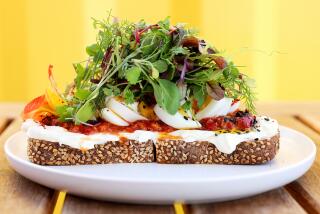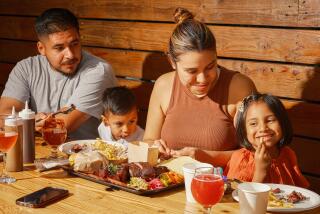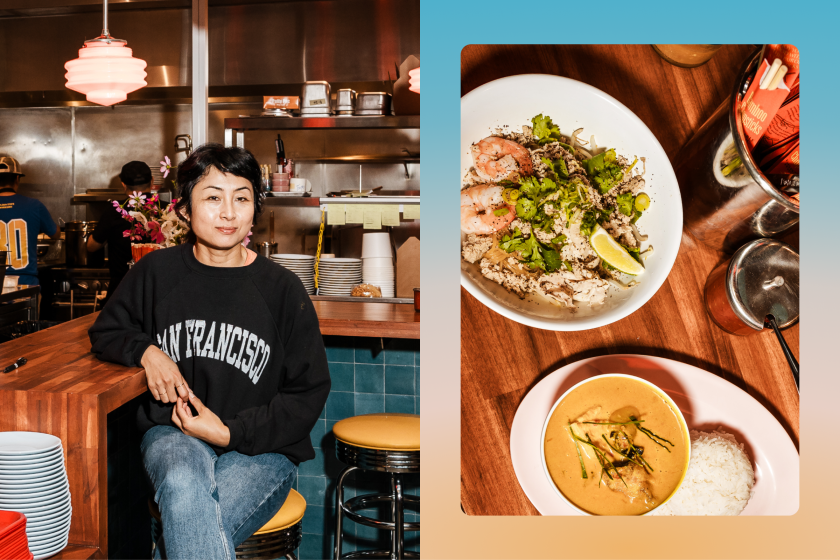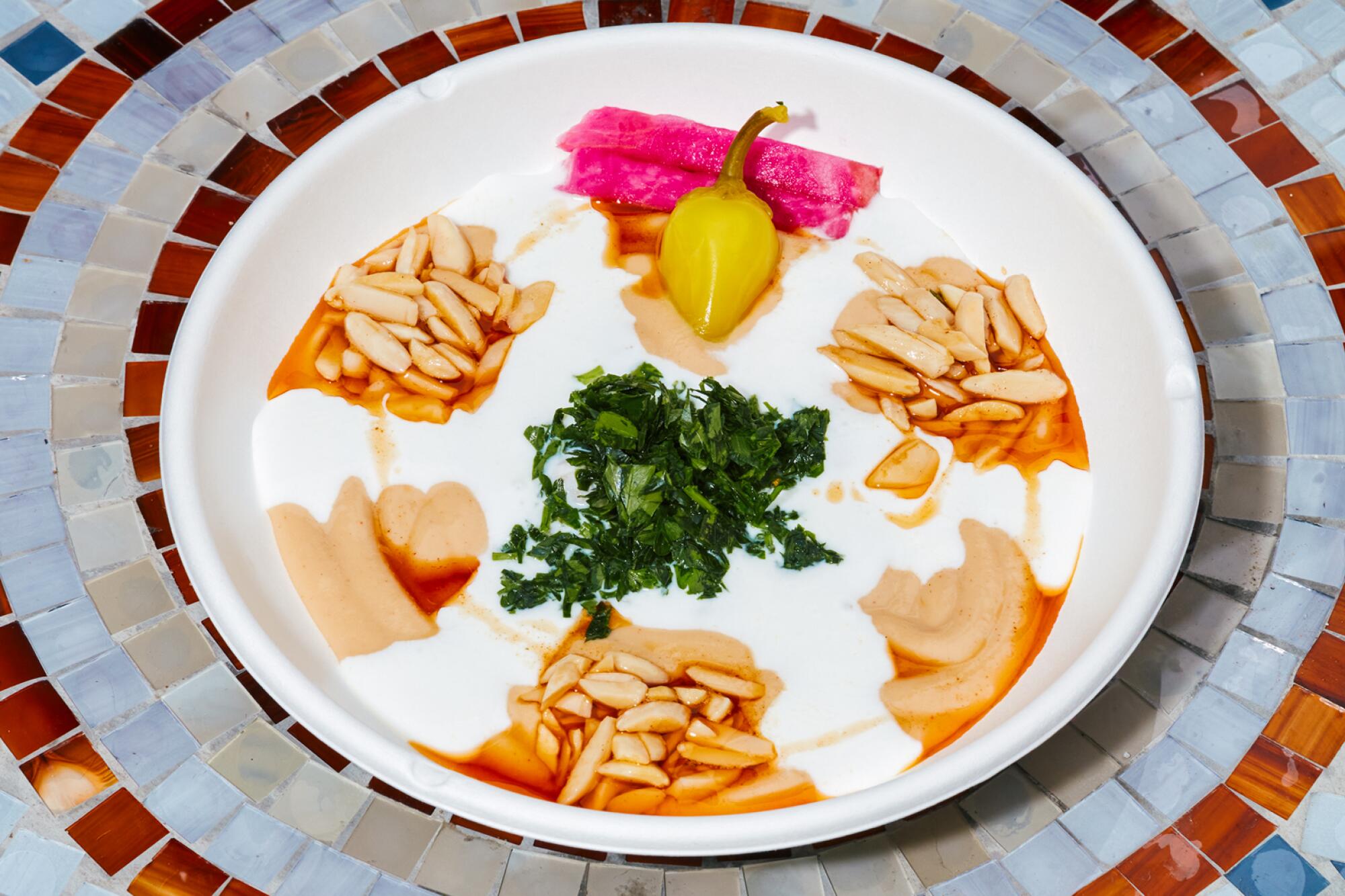
Looking down at a bowl of fatteh at Nawal, a weekend pop-up in Solano Canyon near Dodger Stadium, the carefully sectioned ingredients look as if they’re poised to begin whirling. The color palette isn’t too far off from the spinning pinwheel that can appear on Mac screens. Almond slivers fried in ghee and stained burnt orange from spices; a mound of chopped parsley; pickled turnips dyed pink from beets and cut into batons; and thinned hummus drizzled in triangle-shaped patterns all pop atop a layer of smooth yogurt.
The disruptive crunch of fried pita lurks underneath. Fatteh — the name derives from the Arabic word “fatta,” which broadly translates as “break in pieces” — is a staple Levantine dish of infinite variations built on crisped bread and yogurt flavored with garlic. Dinner versions might incorporate sliced poached chicken, or an overlay of spiced chopped or ground lamb scattered with buttery pine nuts, or cubed fried eggplant. Whole chickpeas usually tumble through, adding a creamy-grainy contrast to the scope of textures.
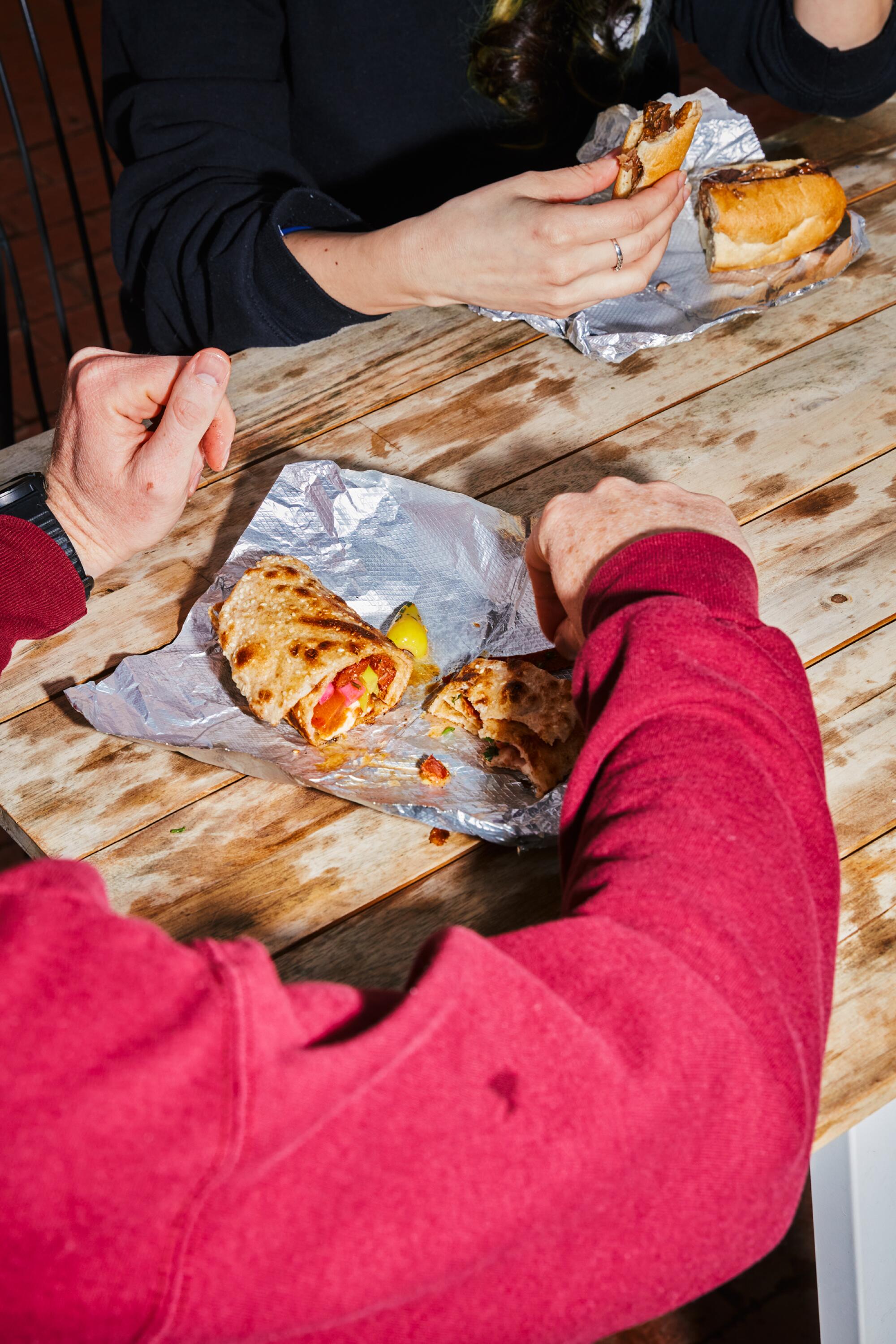
Street vendors and home cooks throughout the region compose vegetarian riffs on fatteh as breakfast. The one that brothers Armbay and Dotee Zakaria assemble for Nawal is the recipe they learned from their mother, who grew up in Damascus, Syria. They go easy on the garlic, and they achieve a glossy lightness to the yogurt by stirring in some of the cumin-scented broth in which they cooked the chickpeas.
Whether you take it to go or settle at one of three tables on the small fenced-in patio in the back of Dotee’s home, you’ll want to inhale the savory comforts of fatteh fast before the pita goes soggy.
The brothers named the pop-up after their mother. Nawal means “gift” in Arabic, and the honorific strikes me as doubly appropriate. We have few restaurants serving this kind of homey Syrian cooking in Los Angeles; the Zakarias’ tiny operation has been a boon to the city since they started service in June.
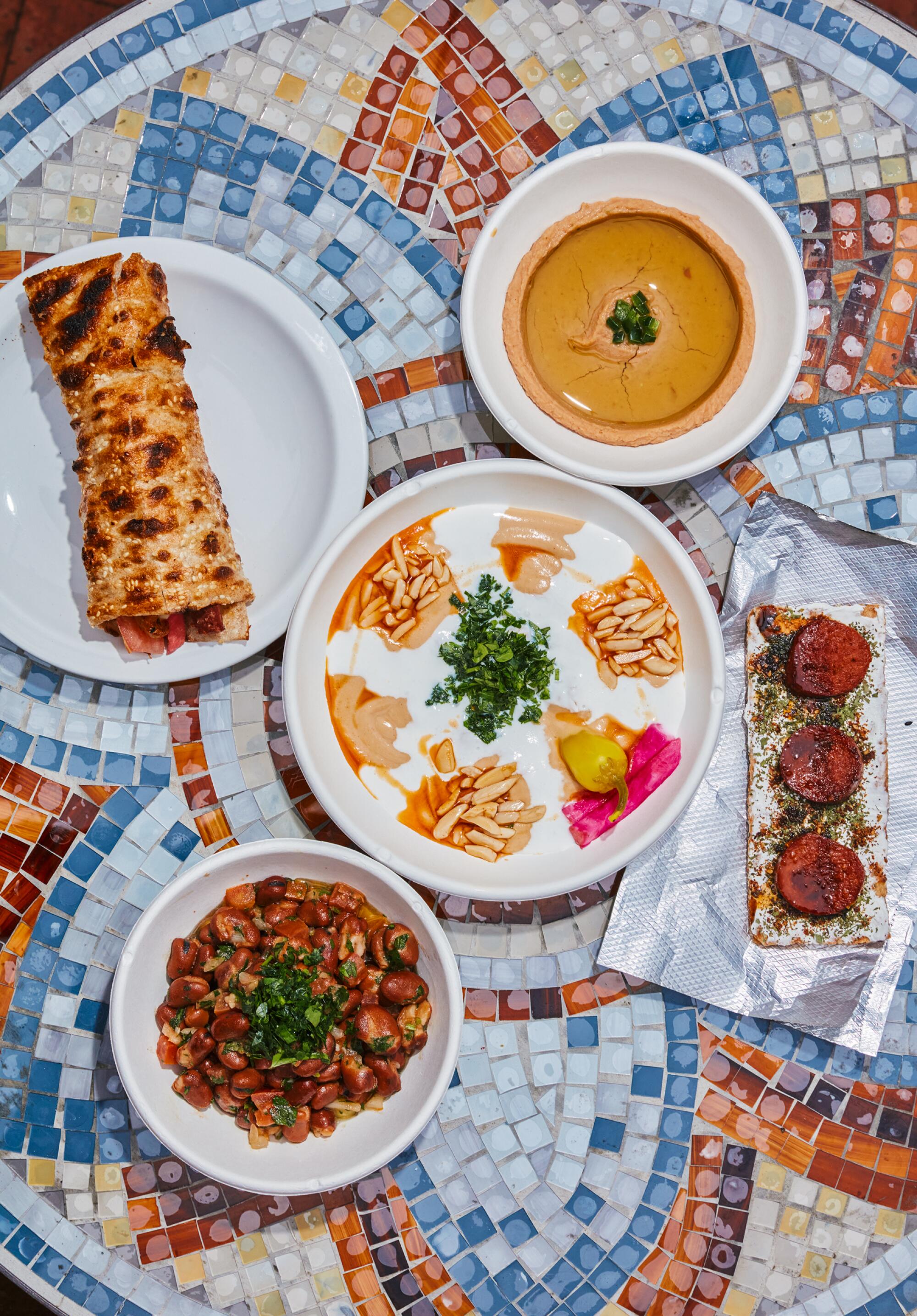
Their menu is short, with five or six core items and a monthly rotation of specials. They open for orders at noon on Saturday and Sunday, though the mix of dishes leans into the traditional Syrian breakfast repertoire. Ful — the long-simmered fava beans that are a cornerstone food across southwest Asia and North Africa — comes in three forms. Two of them present whole favas, yielding but also retaining some chew, dressed with olive oil, garlic, diced tomatoes and chiles. One leans into lemon as the brightening flavor, and the other uses tahini for nutty richness.
A third expression of ful sees these same base ingredients, including the tarator (tahini sauce), blended into a fudgy puree and finished with a peppery glug of olive oil. Plenty of warmed flatbread comes alongside. Fruity green olives and labneh balls rolled in soft-tasting herbs, which are paired as a small plate, complete the spread.
There’s also a wrap, folded around blistered Armenian lavash, that the brothers will readily concede was created out of things they might pull from their mother’s refrigerator and throw together as a snack. Slices of soujouk, a small hunk of fried halloumi, tomatoes, pickled turnips and peppers peek out of one end. It’s earthy, spicy and gone in seven or eight bites. Same goes for a rectangle of lavash baked into a cracker, spread thickly with labneh and sprinkled with za’atar, dried mint and olive oil; slices of soujouk are optional.
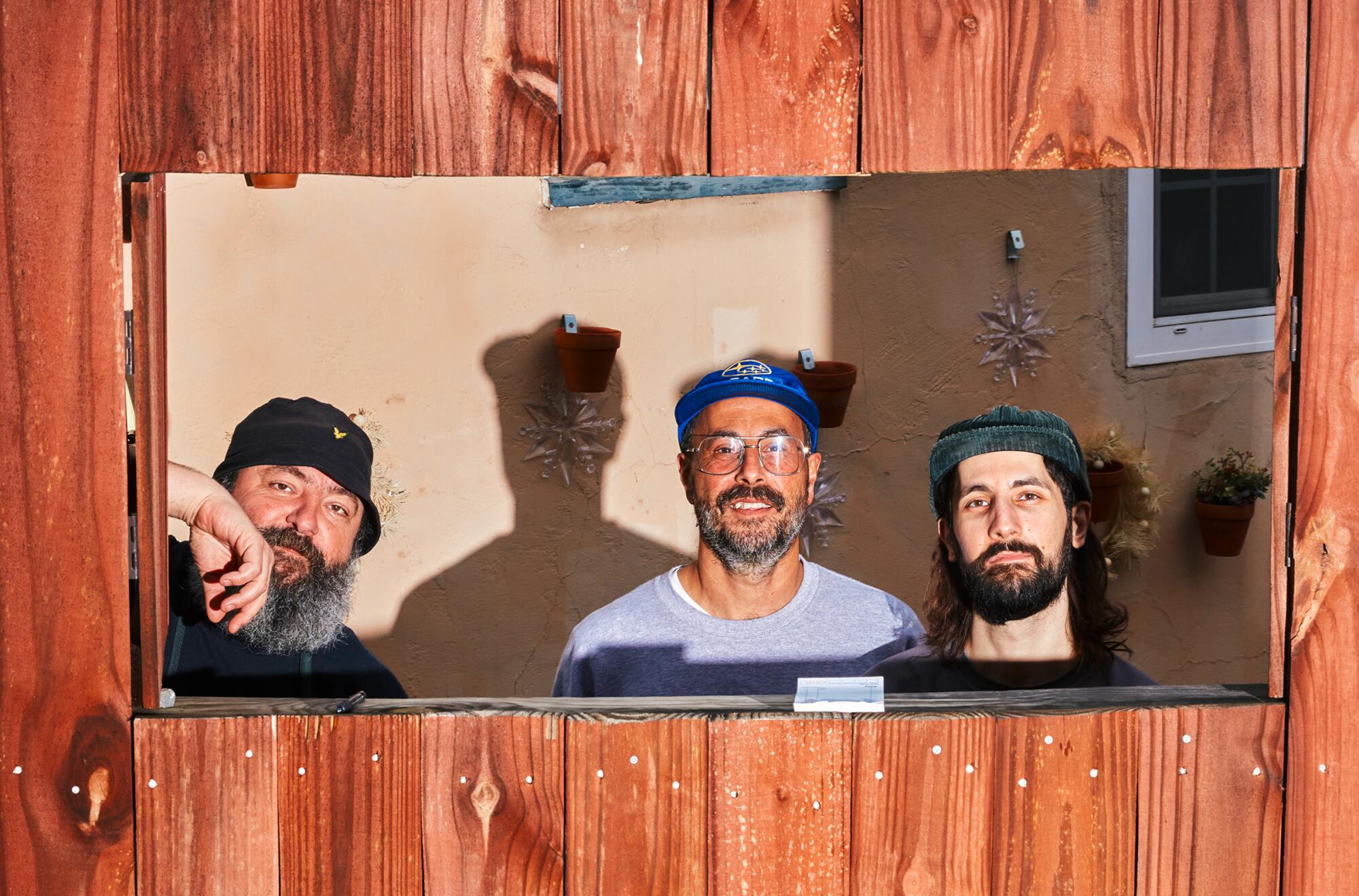
Makdous, oil-cured baby eggplants stuffed with walnuts and garlicky chile paste, show up as a frequent special. I’ve only tasted makdous before from Lebanese friends who haul back jars of it in their suitcase after a visit home. They’re squishy-plush and pleasantly tannic. The Zakarias lay the makdous across sliced baguette, though I’d suggest plucking them off the bread and arranging them over the fatteh, which pushes the soothing combination into sharper, edgier territories.
Take the experience at face value — the charmingly covert system of ordering through a window cut in the wooden fence behind the house; the elegant, sun-soaked flavors punctuated with pickles and herbs — and Nawal is a straightforward pleasure, relaxed and wholesome and gently evolving.
Armbay frequently drifts out of the kitchen, delivering dishes and engaging with customers. Get him talking and he will unravel stories that illuminate the brothers’ project as an uplifting declaration of identity.
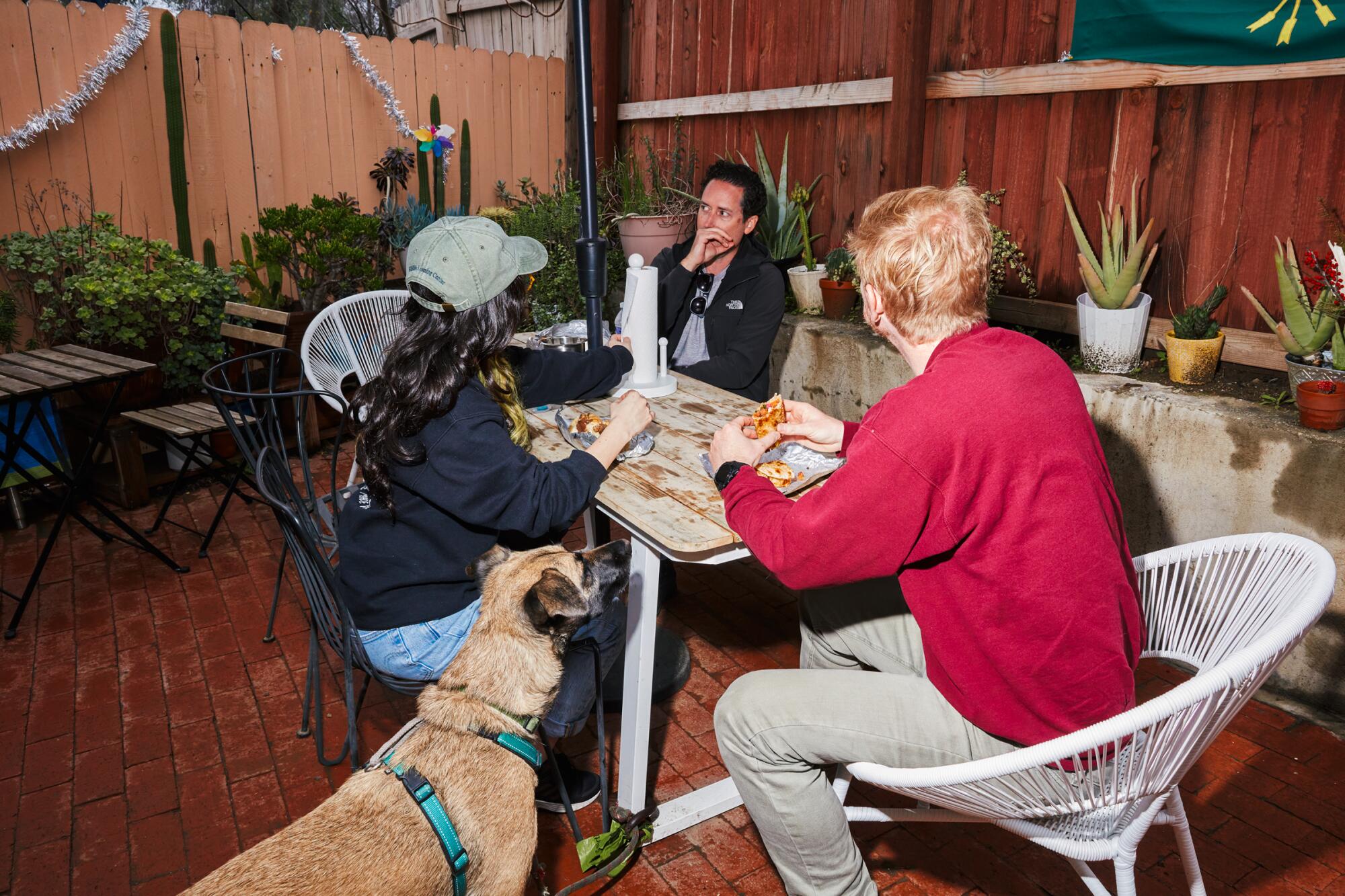
Their parents assimilated into Syria, but they are Circassian by heritage. The Circassians, a group of people indigenous to the mountainous Northwest Caucasus region flanked by the Black and Caspian seas, have experienced profound displacement over the last two centuries. They were expelled from their homeland in the late 1800s after they lost a protracted war resisting subjugation by the Russian Empire.
Most Circassians resettled across the Ottoman Empire; Armbay and Dotee’s parents were among those who settled in Golan Heights, a hilly tract of land in far southwestern Syria. The Circassians established villages where they were able to retain their cultural customs for nearly a century. In 1967, during the Six-Day War, Golan Heights came under Israeli military occupation. Armbay visited the area 20 years ago; his father, Muchir, drew him a detailed map of the destroyed town, called Khushnia, where both his parents had grown up. Armbay was able to follow his precise instructions — the site was frozen in time — and stand on the rubble of their family homes.
After fleeing to Damascus, Muchir and Nawal eventually immigrated to Paterson, N.J., a town designated by the United States government for a relocation program offered to Circassians in the 1970s and ’80s. (Emily Efraimov, whose roving pop-up Little Dacha I’ve followed since she launched it in 2020, also explores her Circassian roots in her cooking and has ties to New Jersey.) In 1978, Muchir and Nawal moved their young family to Anaheim.
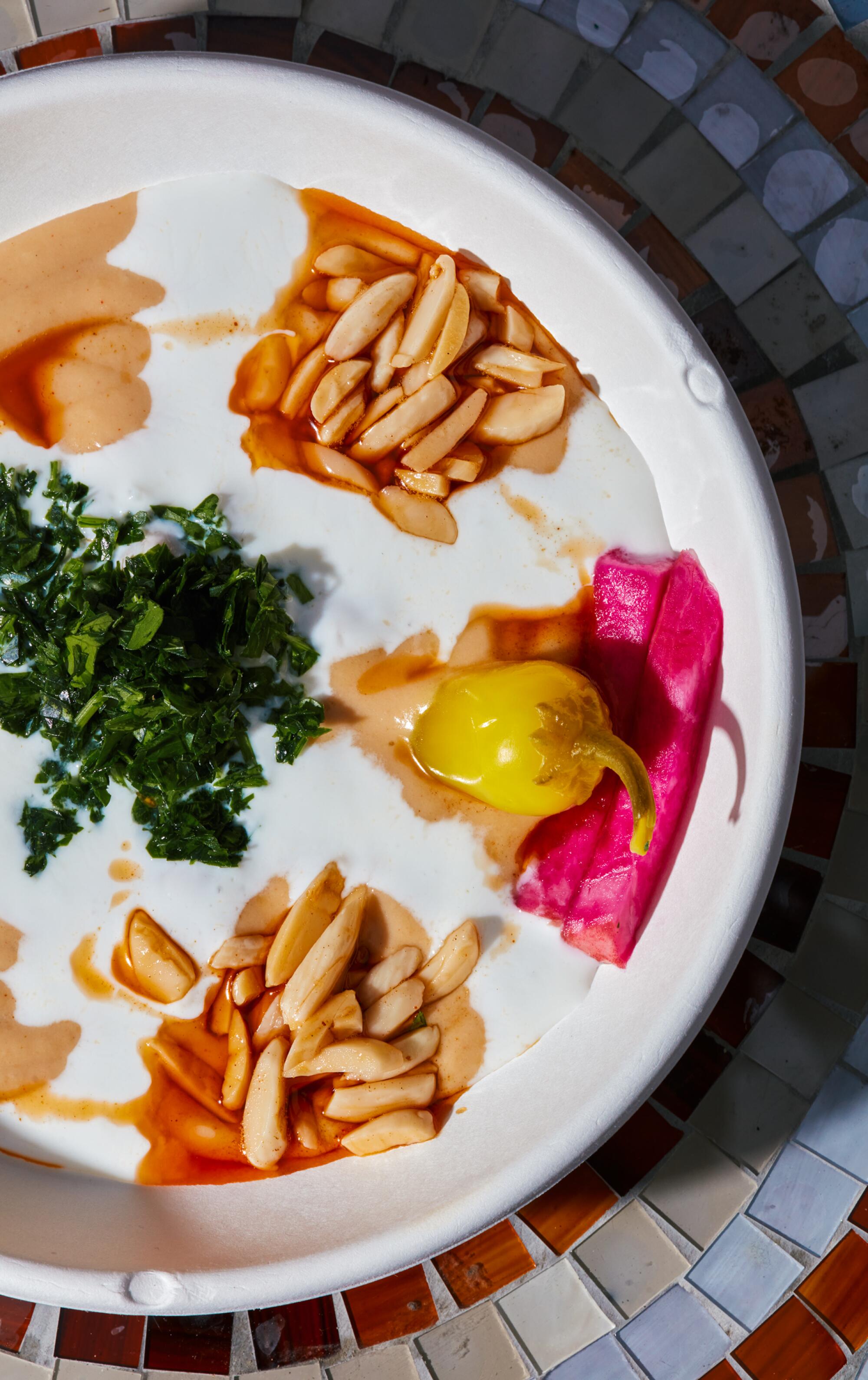
Woodworking has been the family trade since Syria. Armbay and Dotee built the soaring white oak panels that frame the panoramic dining-room views at 71Above in the U.S. Bank Tower downtown. Cutting a hole in a fence for their pop-up was child’s play.
One Saturday in November, the brothers veered from the Syrian dishes and tackled making haliva — crimped and fried turnovers filled with herbed potato or adiga, a homemade Circassian cow’s milk cheese known for taking the shape of the patterned basket in which it sets. Danny Zakaria, the cousin of Armbay and Dotee who takes orders at the windows, brought out the haliva in brown paper bags. A colleague and I ate them hot and fast, nibbling on olives and sipping strong black tea between bites.
I’m thrilled to have a local destination for comforting fatteh, but I also hope the brothers occasionally circle back to haliva and other Circassian dishes that Nawal prepared and taught them. Neither Armbay nor Dotee see their project as some sort of culinary steppingstone. They aren’t chefs aiming for inroads and investors. They like their weekend project as they envisioned it: as a backyard hang, a place for sharing their wildly nuanced heritage, a way to remember. Nawal is totally unique, but it also fluently joins the lineage of ephemeral food spaces — trucks, street vendors, kitchen takeovers, one-off collaborations and creative side hustles — that keep L.A.’s character vital. What a gift.
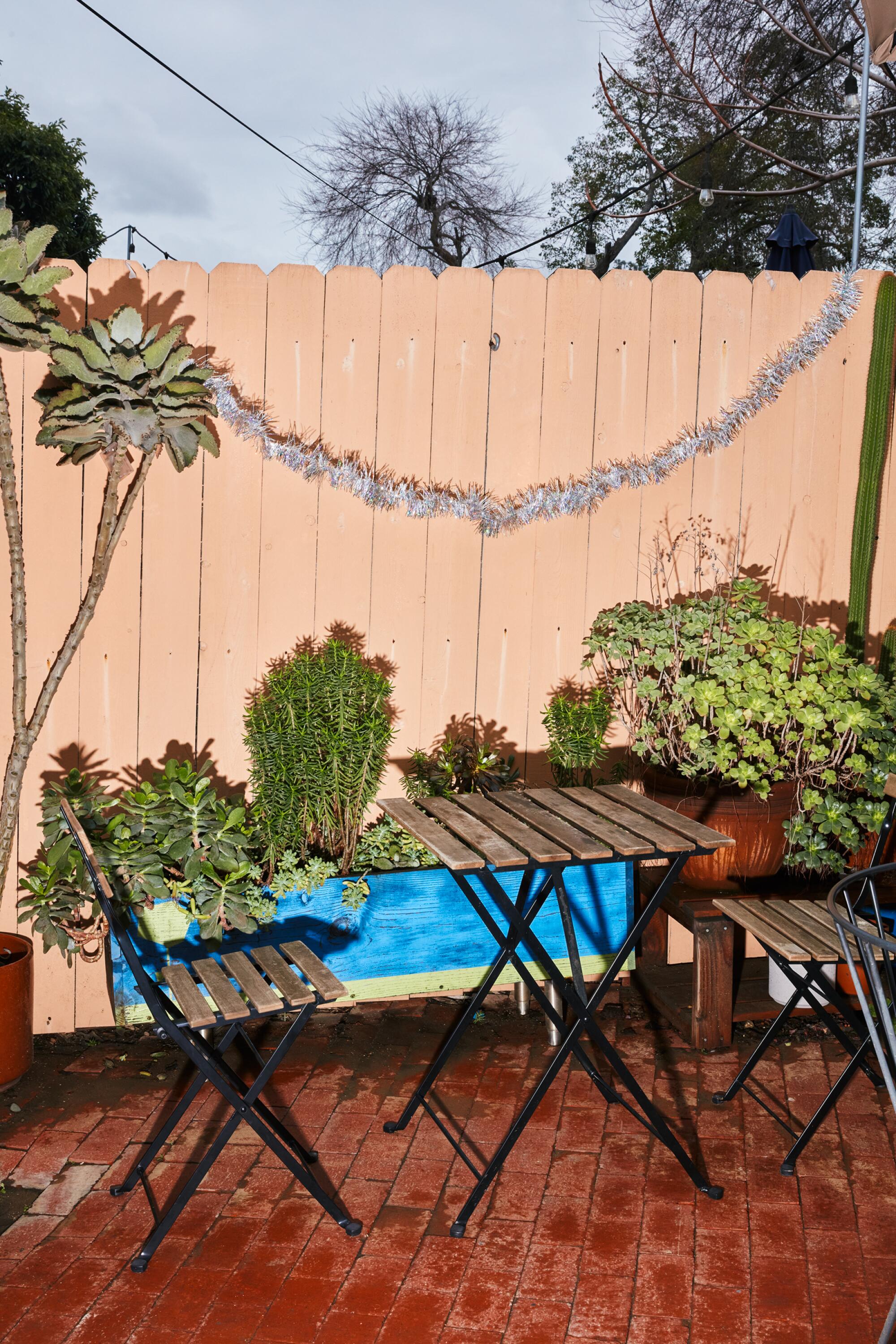
Nawal
838 Solano Ave., Los Angeles, instagram.com/nawal_losangeles
Prices: Snacks $2-$10, soujouk wrap $12, main dishes $12-$15
Details: Open noon to 4 p.m. (or until sold out) Saturday-Sunday. Street parking. No alcohol.
Recommended dishes: Fatteh, ful, makdous, weekly specials.
More to Read
Eat your way across L.A.
Get our weekly Tasting Notes newsletter for reviews, news and more.
You may occasionally receive promotional content from the Los Angeles Times.

